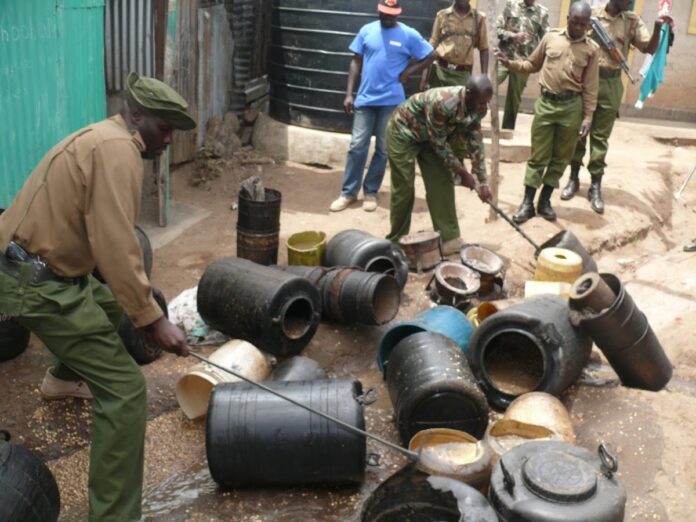Kenya’s anti-drug authority has pledged full support for a government-led 100-day Rapid Results Initiative aimed at eradicating second-generation alcohol, amid growing concerns over the scale of illicit brews.
The National Authority for the Campaign Against Alcohol and Drug Abuse (NACADA) said it will work alongside national and county governments, law enforcement, health institutions and community stakeholders to ensure the campaign delivers results.
“As the lead agency in the fight against alcohol and drug abuse, NACADA will play a central role in this campaign,” the agency’s chief executive, Dr Anthony Omerikwa, said in a statement.
“We will enhance public education campaigns to raise awareness of the dangers of illicit alcohol and increase monitoring and evaluation to sustain momentum beyond the 100 days.”
His remarks came shortly after the interior cabinet secretary, Kipchumba Murkomen, launched the crackdown during a security briefing in Kiambu County.
Murkomen described the issue as a national security crisis, blaming the production and consumption of adulterated alcohol for devastating health and social consequences.
“This is a national security threat,” Murkomen said. “We are putting on notice all rogue businesspersons and individuals involved in the illicit alcohol trade. The time for action is now.”
He issued a pointed warning to politicians, police officers and administrators accused of protecting or profiting from the illegal industry.
“Regrettably, some of those behind this business are government officials, county staff and politicians. These are the very people who should be protecting our citizens. We will deal with them firmly and within the law,” he added.
The campaign will focus on tracing supply chains, targeting licensed manufacturers, distributors, and retailers implicated in adulteration.
With NACADA’s involvement, the government hopes to combine enforcement with public education, empowering communities to resist harmful brews.
Public health advocates welcomed the initiative, calling it a critical step towards reducing preventable deaths and addiction linked to unregulated alcohol.



















